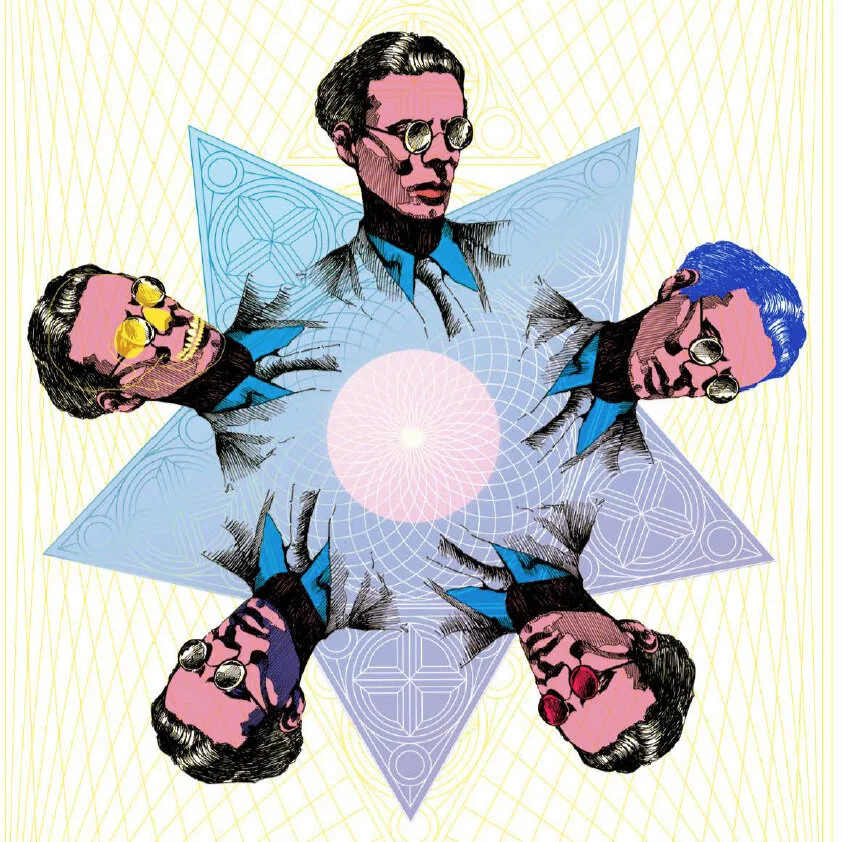Works in Progress
The World Health Organization defines femicide as the “intentional murder of women because they are women.” This has been a global tragedy for so many years.
When I served on the faculty of the Mostly Modern Festival in the summer of 2019, I met a young woman who performed a composition of mine, Rocio Diaz de Cossio. Rocio has just completed her Master's degree in Music at SUNY College/Purchase. She expressed an interest in having me compose a piece for her. Impressed by her musicianship and captured by her spirit, I began to explore some themes and possibilities with her. A dramatic work for solo cello and cellist, created to honor victims of femicide, quickly became our project, and I commenced composing the first of three sections.
LSD: Huxley’s Last Trip unveils astonishing relationships among literary, scientific, academic, and political leaders in the early period of psychedelic experimentation. Consequences of Albert Hofmann’s initial synthesis of LSD (personified by a soprano trio: Love, Sex & Death) are first observed in Aldous Huxley’s visionary experience as documented in his book The Doors of Perception.LSD goes on to play a central role in the excesses of the CIA’s top-secret MK-ULTRA project, also influencing Crick and Watson’s shattering discovery of DNA. With Timothy Leary’s assistance, it contributes to the scandalous relationship between Mary Pinchot Meyer and John F. Kennedy. On November 22, 1963, the same day of JFK’s assassination, LSD eases Huxley’s final hours at his home in the Hollywood Hills.
Joseph Campbell, in his brilliant and influential book “The Hero with a Thousand Faces,” forges a composite hero born of worldwide myths and legends. His brief chapter on women, “The Virgin Birth,” presents the universal goddess, the virgin’s womb, and motherhood. Elsewhere in his book, women are symbolized within the hero’s adventure, awarded as the hero’s prize, and viewed as temptress and Cosmic Woman. Women are objects of worship, of mystery, of desire, and of possession.
In May 2020, the third month in California of covid isolation, I had an epiphany: to compose one thousand new piano pieces honoring women from centuries past, up to the present day, who are without a doubt, heroines…just not according to the Joseph Campbell definition. I’ve already collected dozens of names. If you have any to suggest for adding to my list, please send them my way. Emma Sanders, who fought for democracy in Mississippi, is an ideal example of a heroine.
This large-scale initiative brings literature from around the globe into a relationship with the piano. I’ve completed three of the twelve compositions: “Los Murmullos”; “Les Confidences du Salon”; and “Partizan.” Each is a stand-alone work, and each requires the pianist to speak, intone, and vocalize. All twelve compositions, once completed, will form a set of works known as “The Well-Read Clavier.”
This Lingering Life portrays the intricate network of relationships formed by souls moving between worlds of the dead and living. It draws inspiration from seven Japanese Noh dramas. The libretto, by Mark Campbell and Chiori Miyagawa, based on Ms. Miyagawa’s play of the same name, traverses centuries and continents. Interweaving stories of feudal warriors, a crazed mother whose son was kidnapped, dead lovers who reunite across the Milky Way, a lonely old gardener infatuated with a teenage princess, and a woman with tragic hair seeking her fate. Mark Campbell summarizes, “The ultimate message is that the deeds we do in our lives—good or bad—extend beyond the lengths of our lives and the limits of our geography.”




